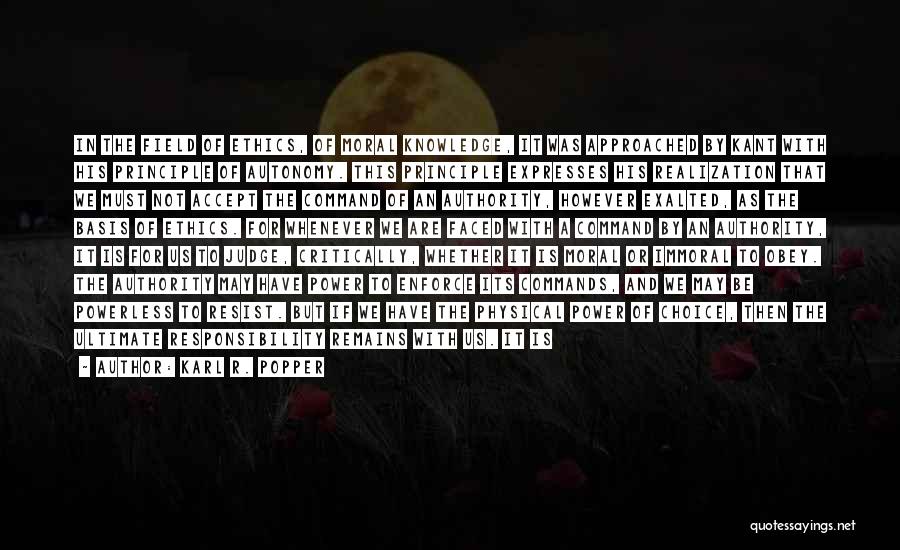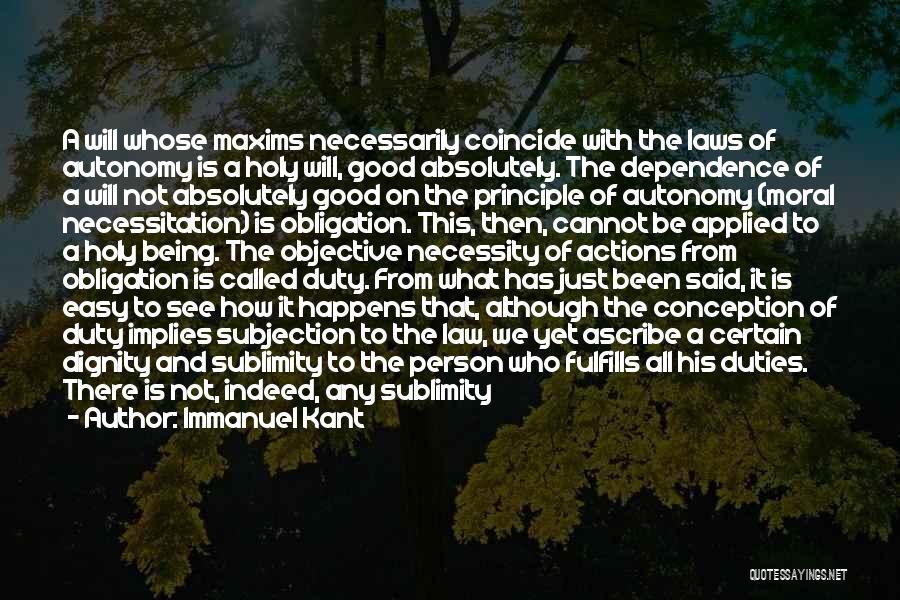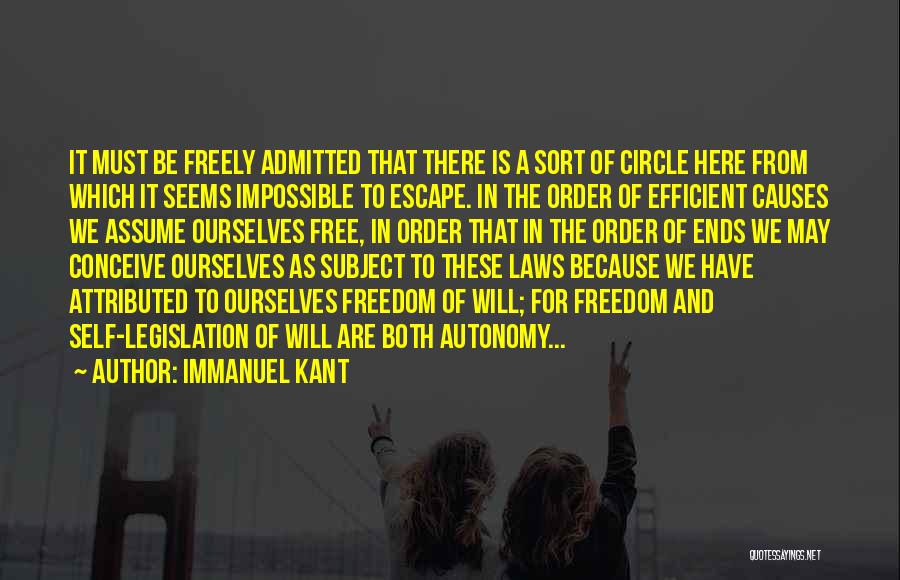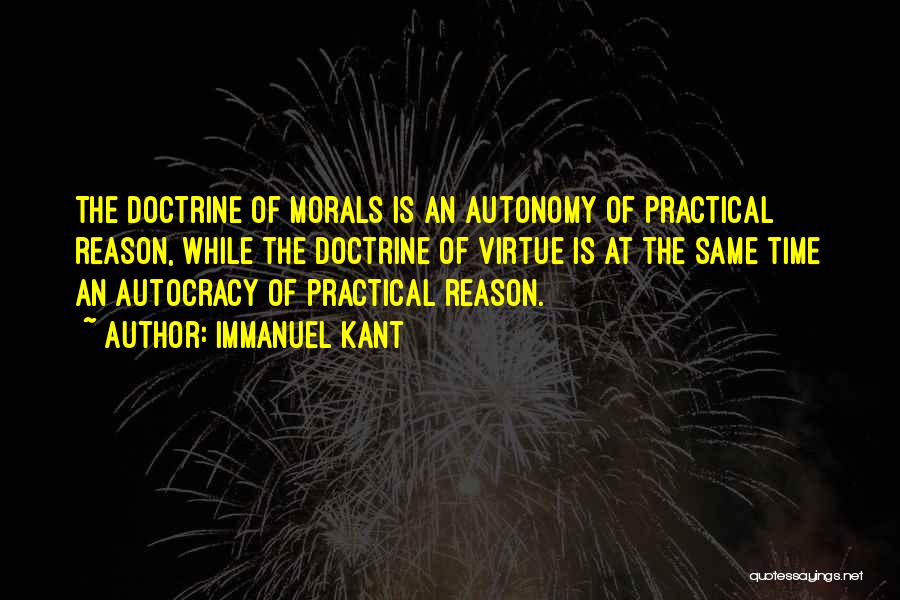Autonomy Kant Quotes & Sayings
Enjoy reading and share 4 famous quotes about Autonomy Kant with everyone.
Top Autonomy Kant Quotes

in the field of ethics, of moral knowledge, it was approached by Kant with his principle of autonomy. This principle expresses his realization that we must not accept the command of an authority, however exalted, as the basis of ethics. For whenever we are faced with a command by an authority, it is for us to judge, critically, whether it is moral or immoral to obey. The authority may have power to enforce its commands, and we may be powerless to resist. But if we have the physical power of choice, then the ultimate responsibility remains with us. It is our own critical decision whether to obey a command; whether to submit to an authority. — Karl R. Popper

A will whose maxims necessarily coincide with the laws of autonomy is a holy will, good absolutely. The dependence of a will not absolutely good on the principle of autonomy (moral necessitation) is obligation. This, then, cannot be applied to a holy being. The objective necessity of actions from obligation is called duty. From what has just been said, it is easy to see how it happens that, although the conception of duty implies subjection to the law, we yet ascribe a certain dignity and sublimity to the person who fulfills all his duties. There is not, indeed, any sublimity in him, so far as he is subject to the moral law; but inasmuch as in regard to that very law he is likewise a legislator, and on that account alone subject to it, he has sublimity. We have also shown above that neither fear nor inclination, but simply respect for the law, is the spring which can give actions a moral worth. — Immanuel Kant

It must be freely admitted that there is a sort of circle here from which it seems impossible to escape. In the order of efficient causes we assume ourselves free, in order that in the order of ends we may conceive ourselves as subject to these laws because we have attributed to ourselves freedom of will; for freedom and self-legislation of will are both autonomy... — Immanuel Kant

The doctrine of morals is an autonomy of practical reason, while the doctrine of virtue is at the same time an autocracy of practical reason. — Immanuel Kant





